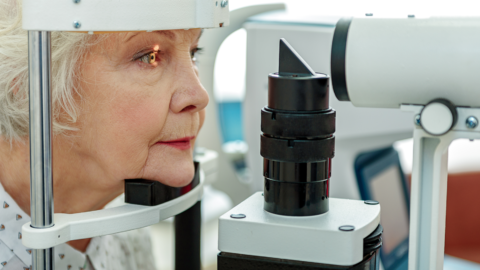Providing Support for People Living With Motor Neurone Disease

In October volunteers from the West Sussex North Branch of the Motor Neurone Disease (MND) Association organised two successful and original events to raise much-needed money for the organisation.
The first was an innovative murder mystery play devised by members of GROPE – the Goring Regional Occasional Players Ensemble.
“I can only describe it as Agatha Christie meets Spinal Tap,” said Sue Sheppard, a long-time supporter of the Association.
The second was a fashion show held at the Queen’s Hall in Cuckfield and run by Jo Jo Dennis of ‘Jo Jo’s Boutique’ with a team of glamorous models, all branch supporters.
Guests were treated to a glass of prosecco and there was a chance to win some incredible raffle prizes.
The sell-out evening was supported by local businesses and raised more than £2000 to help care for people living with the disease.
MND is a terminal neurological condition that attacks the motor neurones in the brain and spinal cord causing muscle weakness and wastage.
It affects the person’s ability to walk, talk, eat, drink and breathe – the progression and presentation of symptoms do not necessarily happen in the same way or in the same order for everyone.
Around half of those diagnosed will pass away within two years, although others have longer prognoses – there is currently no cure.
However, the MND Association continues to fund much of the research into possible causes and treatments.
‘A world free from Motor Neurone Disease’ is the association’s ultimate vision.
It is doing everything it can to enable people living with MND to receive the best care and achieve the highest possible quality of life for the time they have left.
Volunteers are crucial and an Association Visitor (AV) role is central to providing such support. It involves visiting people living with MND to provide them with information, advice, support and a friendly face.
“Volunteers taking up this role can make a meaningful difference, not just to the life of the person living with MND, but also their family,” said the branch chair, Julie Unsted.
“Following diagnosis, many people feel isolated. The AV provides stability by acting as the important link between the family and health and social care professionals.’
“It can, of course, be a challenging and emotional role but it can also be extremely rewarding by helping to solve the often complex issues that people living with MND face.”
Staplefield resident Ron Stevenson, who was diagnosed in 2010, explains the hugely important role that his AV, Chris Sheridan, has played for him and his family.
“Chris has been with us every step of the way. She encourages us to plan ahead and her advice is carefully considered,” he says.
“She has guided us to the appropriate people and agencies as our situation evolved. Having her friendly shoulder to lean on has reminded us that there is still a quality of life despite living with the condition.”
[box type=”shadow” align=”” class=”” width=”600″]If you could contribute or you know someone who is living with MND please visit: www.mndwestsussexnorth.com or contact julie@mndwestsussexnorth.comfor more information. [/box]






